Residential Pressure Washing in
Jacksonville, FL | #1 Services
| Sea Coast PW
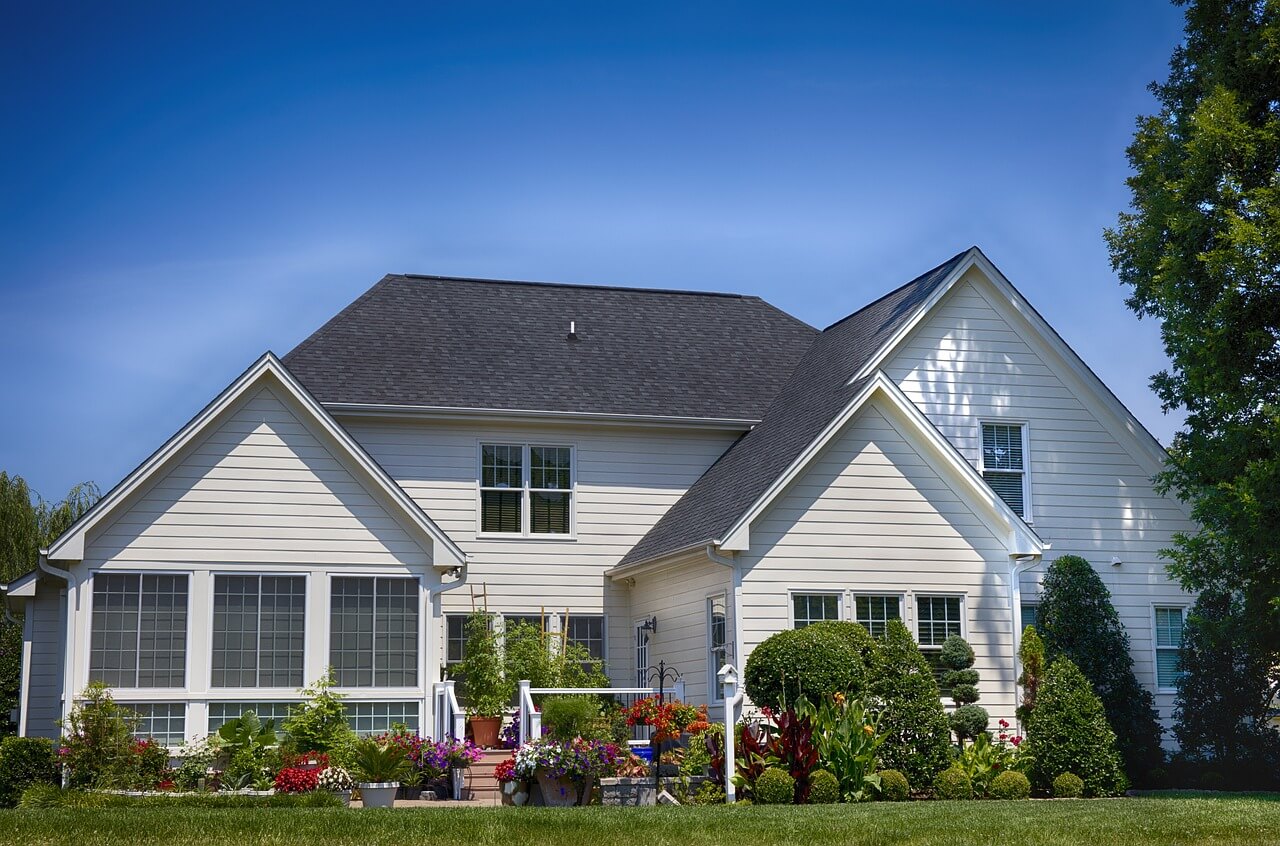
Introduction to Residential Pressure Washing
Welcome to your comprehensive guide on residential pressure washing Jacksonville FL—a city known for its beautiful homes and demanding weather conditions. Whether you’re dealing with the aftermath of a storm, facing the relentless Florida sun, or simply aiming to maintain the beauty and integrity of your home, this guide is for you. Pressure washing is not just about improving your home’s curb appeal; it’s a necessary maintenance task that protects your investment.
Why Jacksonville Homes Need Regular Pressure Washing
Jacksonville’s humid climate is a breeding ground for mold, mildew, and algae, which can not only tarnish your home’s appearance but also cause damage over time. Regular pressure washing removes these unwelcome guests, extending the life of your paint and siding.
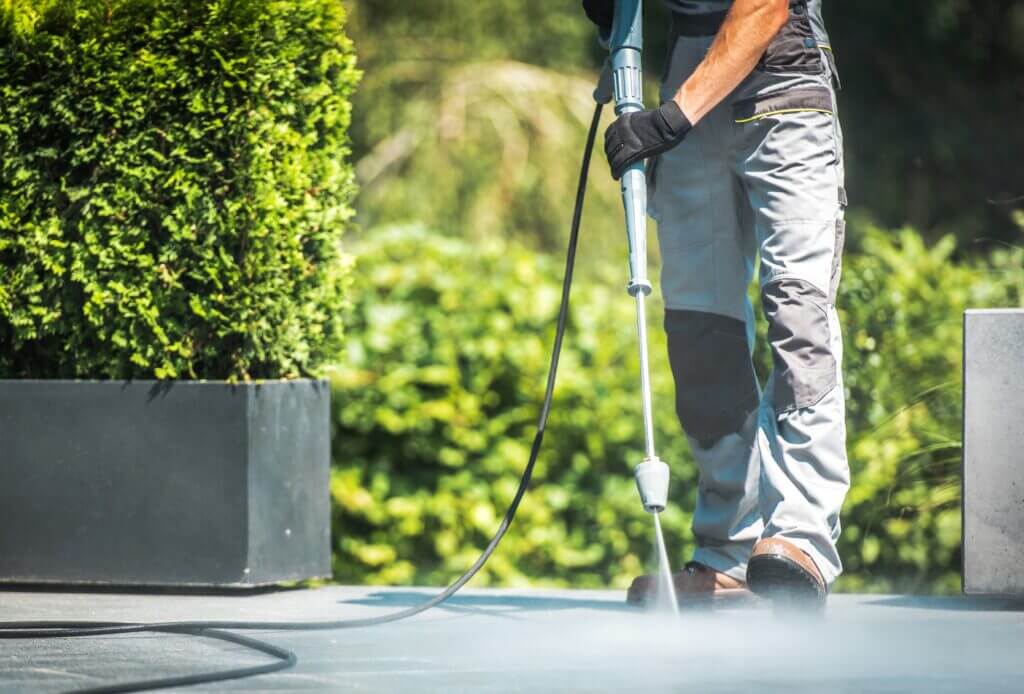
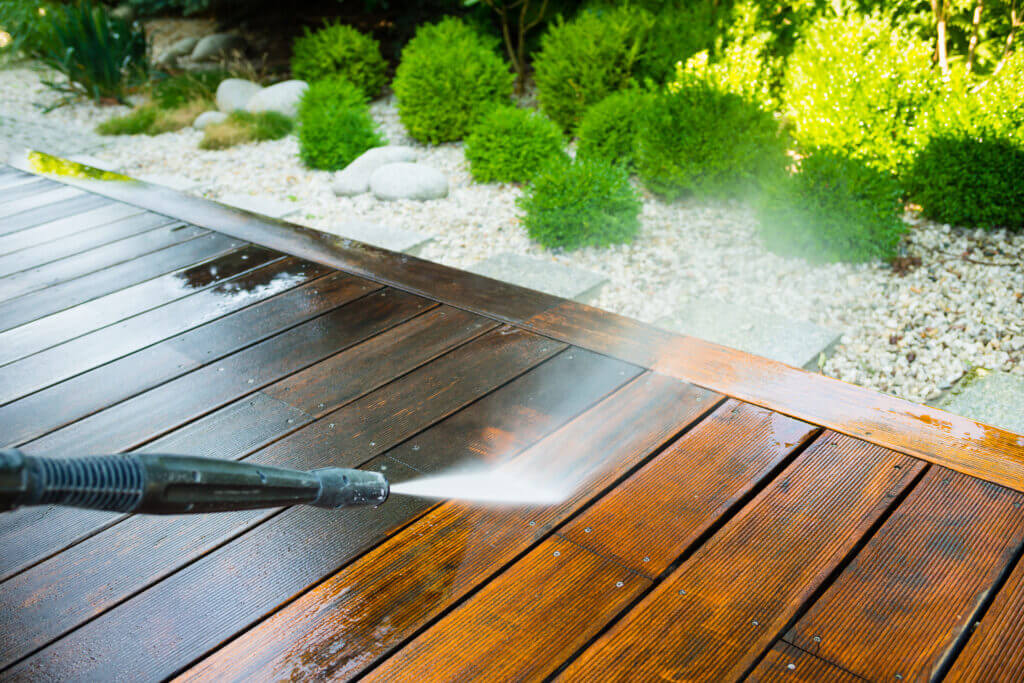
Equipment and Techniques
The equipment used in pressure washing ranges from portable electric models to heavy-duty gas-powered machines. Techniques vary based on the surface being cleaned, with softer materials requiring lower pressure settings to avoid damage. The use of detergents and cleaners can also enhance the effectiveness of pressure washing, particularly on stubborn stains.
Benefits of Pressure Washing for Residential Properties
Pressure washing offers numerous benefits, including:
- Restoring the appearance of your home
- Increasing property value
- Preventing damage from harmful substances
- Reducing health risks associated with mold and allergens
- Preparing surfaces for painting or refinishing

Specifics of Pressure Washing in Jacksonville, FL
Climate and Environmental Factors
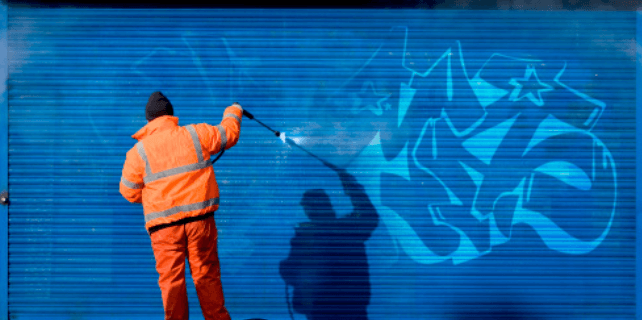
Jacksonville’s climate, characterized by high humidity and frequent coastal storms, can contribute to the rapid growth of mold, mildew, and algae on residential surfaces. These conditions necessitate regular pressure washing to protect and maintain property exteriors.
Common Types of
Contaminants
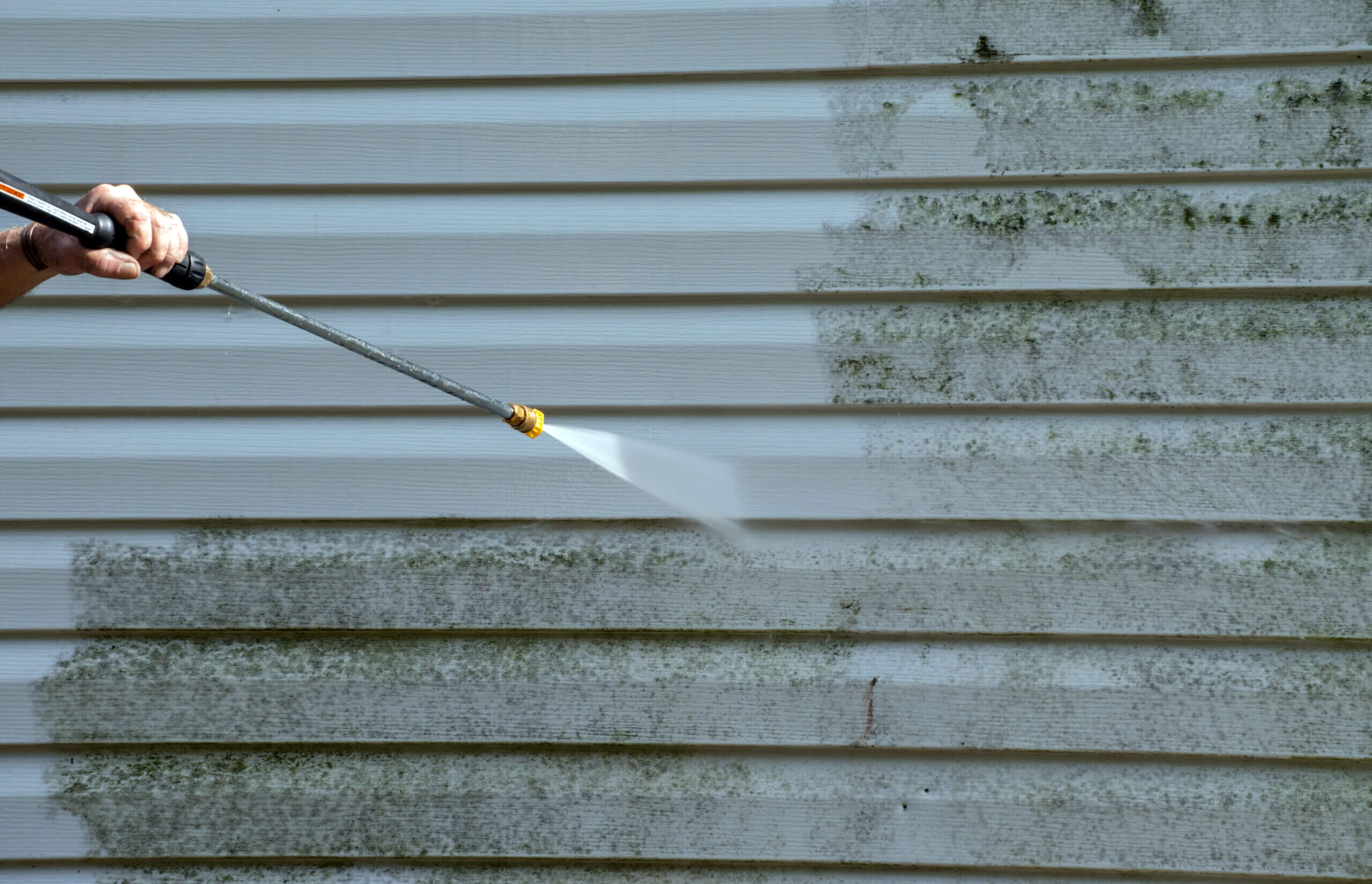
In Jacksonville, common contaminants include mold, mildew, algae, pollen, dust, and salt from the coastal air. These substances can adhere to various surfaces and require specific techniques and solutions for effective removal.
Frequency of Pressure
Washing Needs
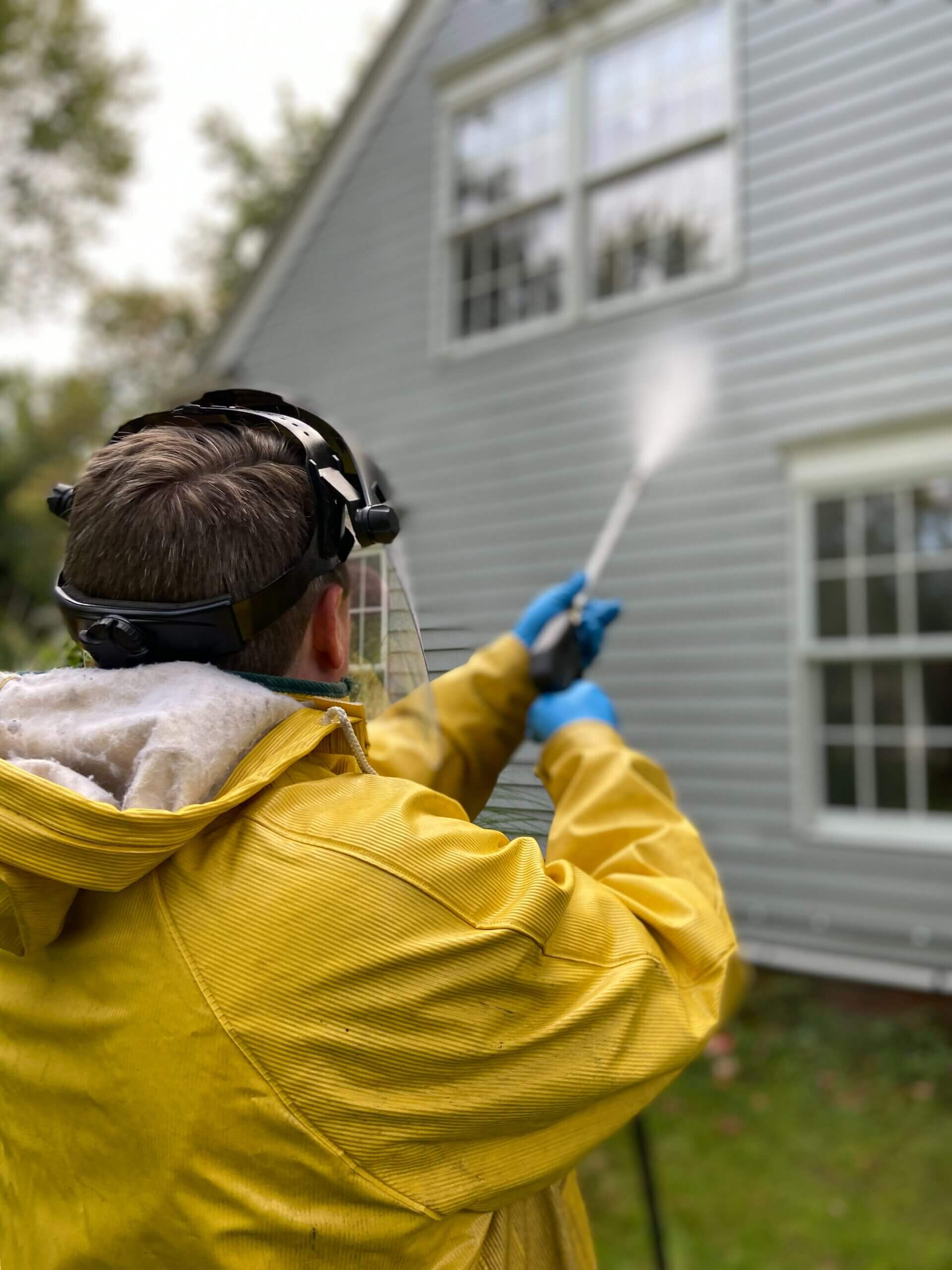
Given the local climate and environmental conditions, Jacksonville residents may find that their homes require pressure washing more frequently than in other regions, potentially as often as once a year or more, depending on proximity to the coast and exposure to elements.
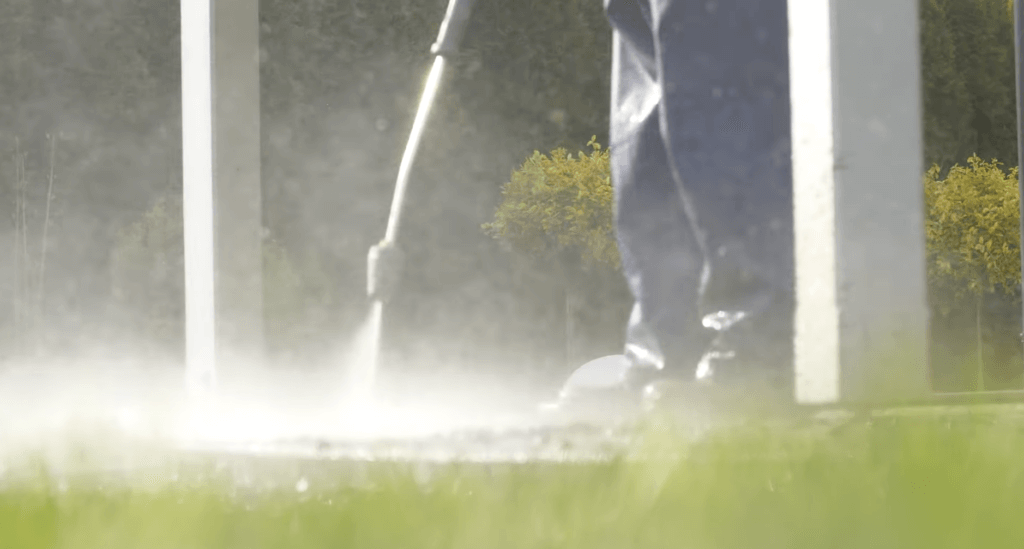
Step-by-Step Guide to Pressure Washing Your Home
Ready to tackle pressure washing? Follow this guide to ensure a smooth and efficient cleaning process.
Preparing Your Home for Pressure Washing
To safeguard your home against potential water damage, it’s imperative to take proactive measures such as securing or removing items that could be damaged by water and covering plants to protect them from excessive moisture. Additionally, checking that all windows and doors are securely closed will help prevent water from entering your home and causing damage. These steps are essential in minimizing the impact of water-related incidents on your property and belongings.
The Do's and Don'ts of Pressure Washing
Pressure washing can be an effective way to clean the exterior of your home, decks, sidewalks, and more. It can remove dirt, grime, and even some stains that would be difficult to clean by other means. However, it’s essential to use a pressure washer correctly to avoid damaging your property. Here are some key do’s and don’ts to keep in mind:
Do's
- Read the Manual: Before you start, familiarize yourself with your pressure washer. Understand its features, capabilities, and safety instructions.
- Wear Protective Gear: Always wear goggles, gloves, and closed-toe shoes to protect yourself from the high-pressure water stream and debris.
- Test the Pressure: Start with a low-pressure setting and test on a small, inconspicuous area. Adjust the pressure accordingly to avoid damage.
- Use the Right Nozzle: Different nozzles are designed for various tasks. Using the correct nozzle can prevent damage and ensure efficient cleaning.
- Clean in Sections: Work in small sections to ensure thorough cleaning and to keep track of areas that have been cleaned.
- Apply Detergents Properly: Use detergents designed for pressure washers. Apply from the bottom up and rinse from the top down to avoid streaks.
- Maintain a Safe Distance: To prevent damage, keep the nozzle at a safe distance from the surface being cleaned. The distance may vary depending on the pressure setting and the surface material.
- Follow Environmental Guidelines: Be mindful of where your water is going, especially if using chemicals. Avoid washing pollutants and chemicals into storm drains.
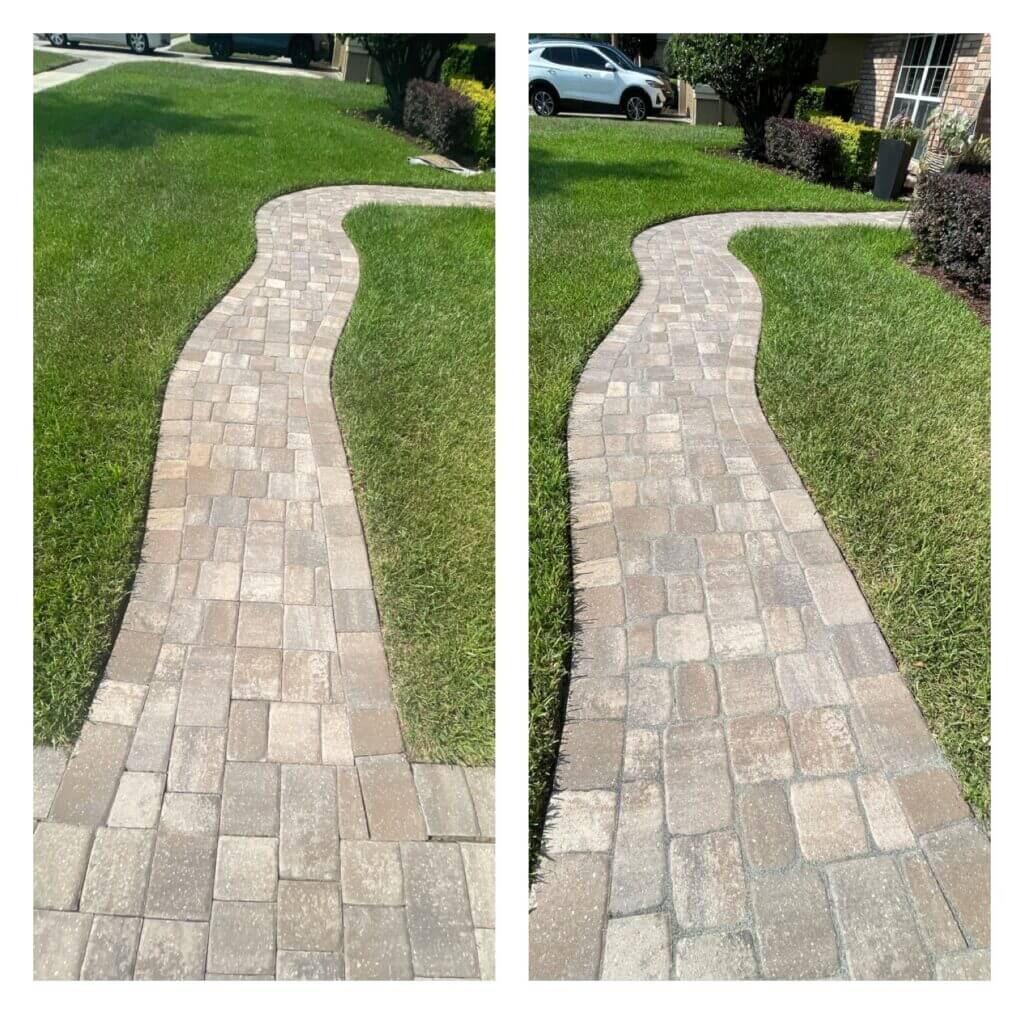

Don'ts
- Don’t Use High Pressure on Delicate Surfaces: Windows, painted surfaces, and certain types of siding can be damaged by high-pressure water.
- Don’t Overlook Safety Precautions: Remember to underestimate the power of a pressure washer. Avoid directing the water stream toward people, pets, or electrical outlets.
- Don’t Use Hot Water Unless Specified: Some pressure washers are designed only for cold water. Using hot water in these machines can cause damage.
- Don’t Ignore the Weather: Avoid pressure washing on extremely windy days or during inclement weather to prevent accidents and ensure effectiveness.
- Don’t Rush: Take your time to move systematically through the area you’re cleaning. Rushing can lead to uneven cleaning and potentially missing spots.
- Don’t Neglect Maintenance: Regularly check your pressure washer for leaks, worn hoses, or damaged connections. Proper maintenance can extend the machine’s life.
- Don’t Forget to Secure Windows and Doors: Before starting, ensure that windows and doors are closed to prevent water from entering your home.
By following these dos and don’ts, you can effectively and safely use a pressure washer to clean various outdoor surfaces. Always prioritize the safety and the integrity of the surfaces you’re cleaning to prevent damage and ensure a successful cleaning process.
Safety Tips for DIY Pressure Washing
Safety first! Pressure washers are powerful tools. We’ll cover essential safety tips to prevent injuries and property damage.

Wear Protective Gear
Always wear safety goggles to protect your eyes from debris that the high-pressure water can kick up. Durable gloves can help you maintain a firm grip on the pressure washer handle, and closed-toe shoes will protect your feet from both the water jet and any objects that might be dislodged. Consider wearing ear protection if your pressure washer is particularly loud.
Read the Manual:
Before you start, it’s crucial to read the manufacturer’s manual. Every pressure washer is different, and there are essential instructions and safety warnings specific to your model. Understanding how your pressure washer operates can prevent accidents and damage to what you’re cleaning.
Be Aware of Your Surroundings
- Keep children, pets, and bystanders away from the area you’re cleaning. Also, be mindful of your surroundings for electrical hazards, especially when washing near electrical outlets or devices. Ensure that all electrical connections are secure and use a ground fault circuit interrupter (GFCI) plug.
Use the Correct Settings and Attachments
Using the wrong pressure setting or nozzle attachment can damage surfaces or cause injuries. Start with a lower pressure and test in an inconspicuous area. To reduce the risk of damage, use wider-angle nozzles for delicate surfaces.
Never Point the Nozzle at People or Animals
The water stream from a pressure washer is powerful enough to cause serious injuries or even penetrate the skin. Never use the pressure washer to spray people, animals, or fragile objects. Always turn off the machine and release any built-up pressure before changing nozzle tips or performing maintenance.
Residential Pressure Washing Services in Jacksonville, FL
Considering professional help? Here’s what you need to know about hiring local pressure washing services.
How to Choose the Right Pressure Washing Service
Selecting the ideal service provider for your home involves a thorough evaluation of several critical factors. It’s essential to consider the provider’s level of experience and expertise in the specific service you need, ensuring they have the skills to meet your expectations. Additionally, verifying that the provider carries adequate insurance is crucial for your peace of mind, protecting you against potential damages or accidents. Finally, reviewing customer feedback and ratings offers invaluable insights into the provider’s reliability and quality of service, helping you make a more informed decision.
What to Expect from Professional Pressure Washing
When opting for professional services, you can expect to gain access to a wealth of specialized knowledge and experience that ensures tasks are completed with a high degree of expertise. These services often come equipped with state-of-the-art tools and equipment, enabling the delivery of superior quality results that might be difficult to achieve on your own. Additionally, professionals are adept at optimizing processes to be more efficient, significantly reducing the time it takes to complete projects compared to DIY efforts, allowing you to focus on other essential aspects of your work or life.
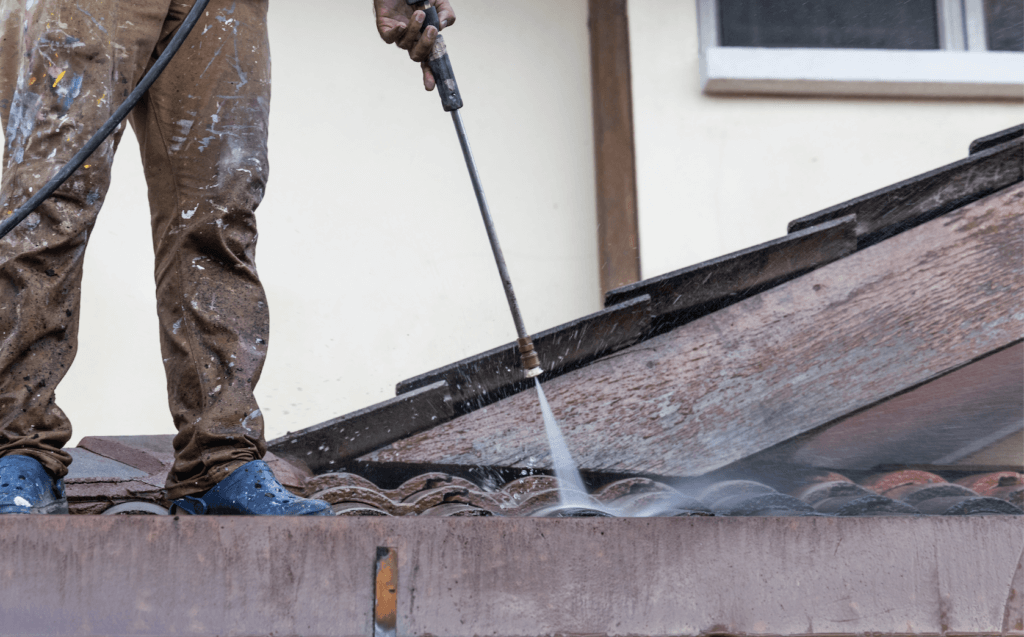
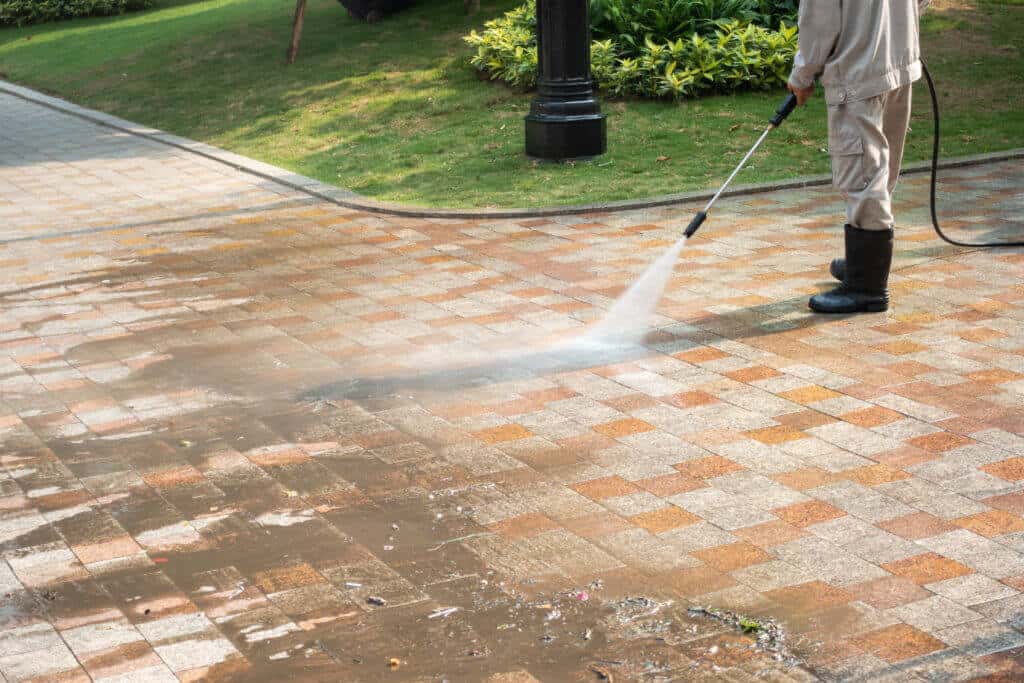
The Environmental Impact of Pressure Washing
In an era where environmental concerns are paramount, understanding the impact of pressure washing is crucial.
Eco-Friendly Pressure Washing Solutions
Modern techniques and solutions for pressure washing have made significant strides in reducing environmental impact. They focus on the use of biodegradable cleaners that break down naturally without harming the ecosystem. Innovations in equipment design now allow for greater water efficiency, utilizing less water while maintaining high cleaning effectiveness. Additionally, adopting water reclamation methods, which capture and recycle the water used during pressure washing, further conserves water and prevents runoff containing pollutants from entering waterways.
How to Minimize Water Waste During Pressure Washing
Using a high-efficiency nozzle on your pressure washer can significantly reduce water usage without compromising cleaning power, making it an essential tool for eco-friendly home maintenance. Timing your pressure washing for more excellent parts of the day can prevent rapid evaporation, ensuring more water goes directly to cleaning surfaces. Additionally, sweeping or manually removing loose debris before pressure washing can decrease the need for repeated washes, saving water while still achieving a thorough cleaning.
Maintaining Your Home After
Pressure Washing
Once your home is sparkling clean, maintaining that cleanliness can extend the intervals between washes.
Tips for Prolonging the Cleanliness of Your Home
Implementing regular spot cleaning can significantly extend the period your home stays clean by addressing spills and stains immediately, preventing them from setting in and becoming more challenging to remove. Minimizing direct moisture exposure in your home helps prevent the growth of mold and mildew, which not only keeps surfaces clean but also maintains indoor air quality. By combining these strategies with routine decluttering, you can reduce dust accumulation and create a cleaner, more hygienic living environment that requires less intensive cleaning sessions.
When to Schedule Your Next Pressure Washing Session
Recognizing when your home needs another pressure washing is crucial for preserving its aesthetic appeal and structural health. Signs like accumulated dirt, mold growth, and discoloration on your home’s exterior surfaces signal that it’s time for a thorough cleaning. Regular pressure washing not only enhances your property’s appearance but also prevents long-term damage by removing harmful substances.
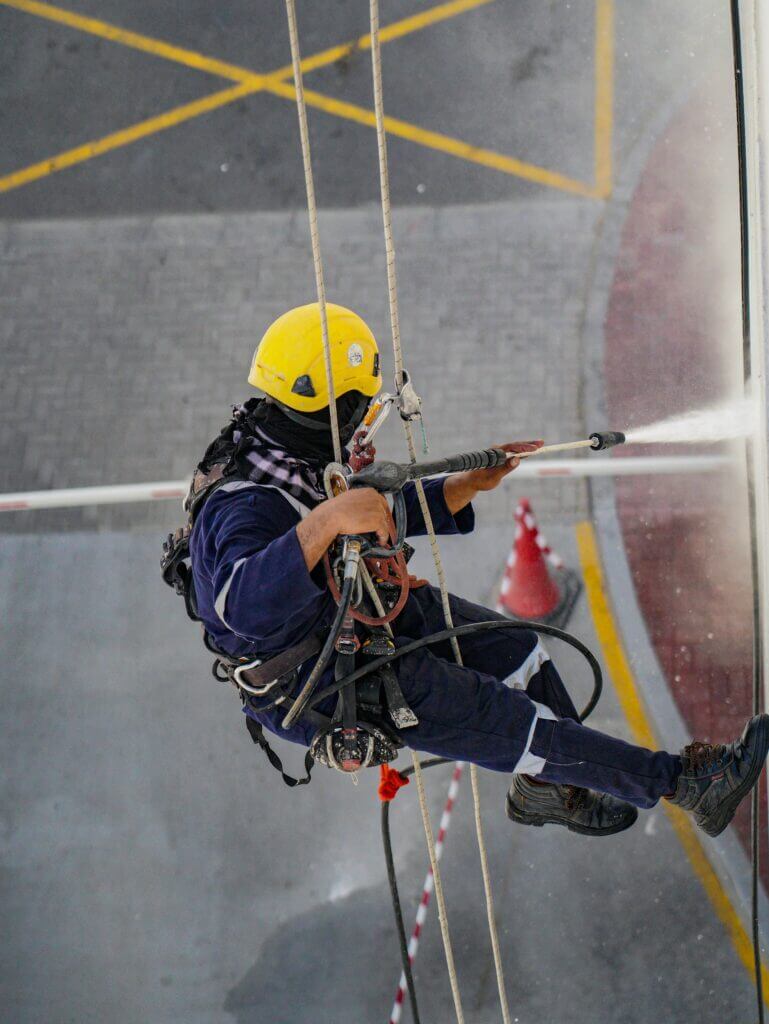
FAQs About Residential Pressure Washing Jacksonville FL
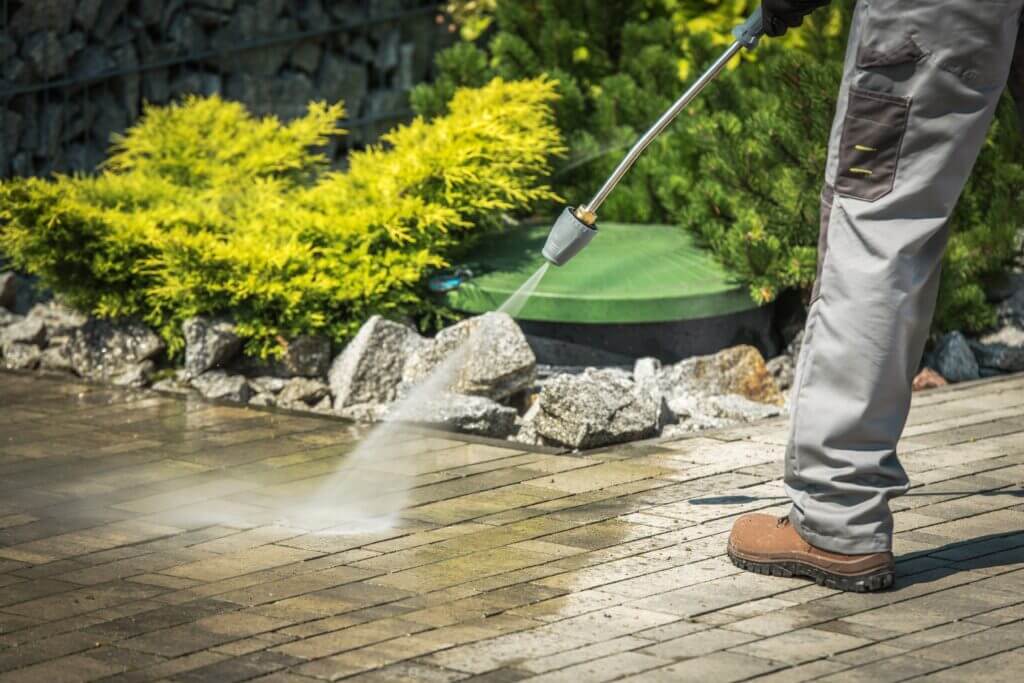
How often should I pressure wash my home in Jacksonville?
Regularly, at least once a year, to combat the local humid climate and prevent the buildup of mold, mildew, and grime.
Can pressure washing damage my home's exterior?
Yes, if done incorrectly. However, using the right techniques and equipment minimizes risks, making it safe for most surfaces.
Is pressure washing environmentally friendly?
Yes, mainly when eco-friendly cleaning solutions are used, and water consumption is managed carefully.
What's the difference between
pressure washing and power washing?
Power washing uses heated water, which can be more effective on certain types of grime and buildup.
Can I pressure wash my windows?
It’s not recommended due to the risk of damage. Low-pressure washing with appropriate equipment is safer for cleaning windows.
How long does it take to pressure wash a house?
It depends on the size of the house and the extent of dirt buildup, but most homes can be pressure-washed in a day.
Conclusion: Why Pressure Washing is Essential for Jacksonville Homes
Pressure washing is not just about aesthetics; it’s a critical maintenance practice that protects your home’s value, extends its lifespan, and improves your living environment. By understanding the importance, benefits, and best practices of residential pressure washing Jacksonville FL, you can ensure your home remains a beautiful, safe, and healthy place to live.

